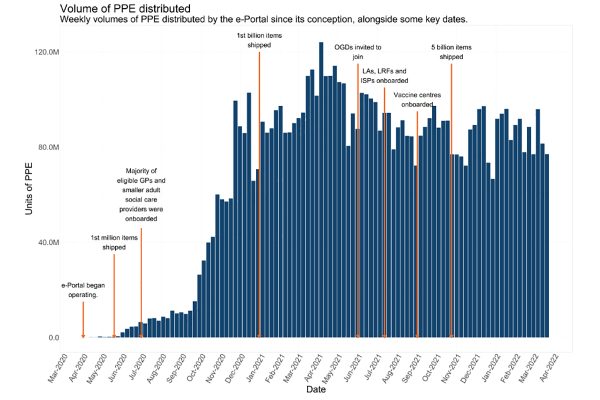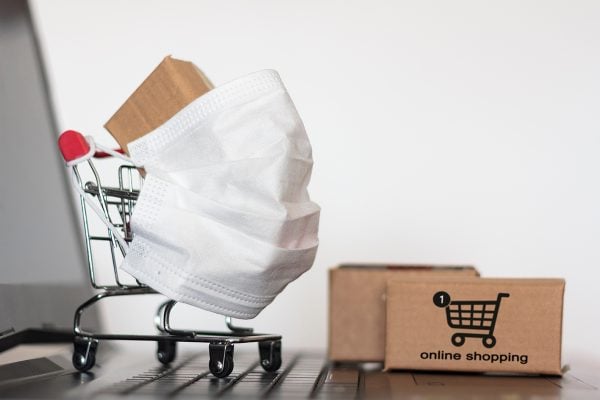Towards the end of last week, the government changed their stance on their ‘If you can work from home, work from home’ messaging with Boris saying that maybe it’s time to return to the office. Sounding more like a vague wish than a command, the problem is getting people back to work without a spike in infections and so the post pandemic conundrum is how to say it’s safe to return to work but it’s still not safe so stay alert.
Normally millions of office workers are paying for public transport but buses and trains are still running relatively empty which is unsustainable in the long term. There are also thousands of businesses which rely on office workers for their existence serving everything from coffee on the way into work to lunches and post working day drinking, eating and socialising and until people return to the office they are in danger of going under.
Post pandemic travel and the office
Advising consumers to walk, cycle or if they must use their own car is advice many took to heart and whilst the opportunity remains to re-imagine the morning commute in which the recent lovely weather has assisted, the reality is that when summer ends and winter sets in people will either dump the bike in favour of the car or remain working from home.
Wear a mask and jump on a train isn’t a message which is going down well for a large proportion of the population who, whilst they’re perfectly happy to protect other people, are well aware that your mask doesn’t protect you. Other people wearing a mask is no where near as compelling as 2m distancing or the ultimate not leaving home. Many are relatively happy to not go to work and indeed the way some ecommerce companies operate has already changed forever.
Home working is here to stay
There are some who can’t wait to get back to the office and have found working from home not only socially isolating but also bedroom zoom sessions have past the point of being fun. However there are others who have discovered the joy of rolling out of bed at 8.30, starting work at 9.00 in their casual clothes and realised that the 10 to 20 hours per week they spend travelling to work gives an amazing amount of freedom.
We’ve already heard from three companies in the ecommerce third party provider world who have quit the office forever, two had the good fortune of one of their office tenancies coming up for renewal during the lock down and one closed their only office. There are other third party providers who are reassessing the requirement for workers to come into the office on a daily business and considering how to give employees a more flexible relaxed life style with perhaps office working being optional or only required once or twice a week. There’s going to be a lot of empty office space available to let for those who deem it a requisite.
Post pandemic High Street retail
Ecommerce itself has changed or it would perhaps be more correct to say that high street retail has changed. With the high street shut for 100 days, the migration to online has been artificially accelerated by years. Coupled with a reluctance to return to physical shopping for many, the habit of simply clicking online for the past four months and convenience of home delivery is going to be hard to break.
There are also many businesses, both online and offline, who have seen demand for their products vanish overnight. Party, wedding, fancy dress and the like have simply had no customers so even returning to work and opening the doors again won’t automatically kick start their operations.
Brexit
Brexit is still jogging along with the end to the Transition Agreement and a potential (but not yet guaranteed) long term EU trading agreement coming down the line. One thing is certain and that is that there will be customs hurdles to overcome from the 1st of January 2021. Even if the UK operate relatively relaxed import procedures until July, the EU are certainly not going to skimp on checking UK exports as soon as the New Year starts.
For many online retailers, it will make sense to start the new year with stock already in fulfilment warehouses in the EU if you want to smooth the transition.
China
The world is much bigger than our largest trading bloc however and here China is the one to watch. The Chinese economy appears (if you can believe China) to be bouncing back faster than the rest of the world, aided by being first to be hit and pass the pandemic peak. Relationships between China and the UK are facing two political bombs at the moment – the situation in Hong Kong and the security concerns around using Huawei in the 5g mobile network present a real danger of a cooling of diplomacy.
At the same time China will have an excess of cash and will as always be keen to hoover up overseas property and businesses and that includes in the UK. When inward investment will be welcomed, it might be the case that funding for the UK deficit is propped up by Chinese investment.
Economic recovery
We are currently in the second phase of the government’s economic recovery plans from the pandemic. The first was to protect people and ensure the majority had their income protected. The second is to reopen the economy and get people back to work – hence the Chancellor’s ‘Eat out to help out’ 50% off meal deal coming in August. The third stage to rebuild the economy without a return to austerity and figure out how to start paying down the billions of debt taken on during the pandemic is yet to come.
The one thing that’s certain is there can be no return to normality. There’s still the prospect of a second wave of Coronavirus as winter comes, colder temperatures held the virus spread, and people huddle in groups indoors. There’s also no desire to return to a world where cities face heightened levels of air pollution – everyone has welcomed living in a cleaner greener world.
Be prepared for change
Ecommerce merchants should be prepared for ever more change in the second half of 2020. If things were busy online during the pandemic, if there is a second wave then when the Black Friday season comes around the levels of online trade seen during the lock down will be dwarfed when the Christmas present shopping season starts.
Finally, don’t forget that there is still the danger of local lock downs which could interrupt operations for short periods of time with little notice. These could not only directly impact you, but could also impact supplies of everything from inventory to packaging if your suppliers are in a lock down area.










2 Responses
“However there are others who have discovered the joy of rolling out of bed at 8.30, starting work at 9.00 in their casual clothes and realised that the 10 to 20 hours per week they spend travelling to work gives an amazing amount of freedom.”
Off course, I have worked in shorts and T for years it is bliss, and 09.30 is a far more respectable time to boot a computer then go for a coffee, never understood why everyone has to be in at 9am.
My Wife for one, and her Boss has seen all his staff can work from home also.
He has About 8 offices dotted around Central Scotland with leases and 1 owned and he is looking to get rid of some of the office space and work some of the staff from home. The wife will be away on maternity anyway soon and I doubt she will return to the office but would work from home.
We have gone on about poor productivity in the UK for a long time. Too many BooHoo (just the tip of the iceberg) employers am afraid and staff just do not care. Those who get this is their head that happy workforce is better will come out stronger. This has been the way in the Nordics for years and it works.
I absolutely agree with being productive working from home. But that’s because I’ve been at it for the past 20 years and already have a system in place. Discipline and self motivation is absolutely crucial!